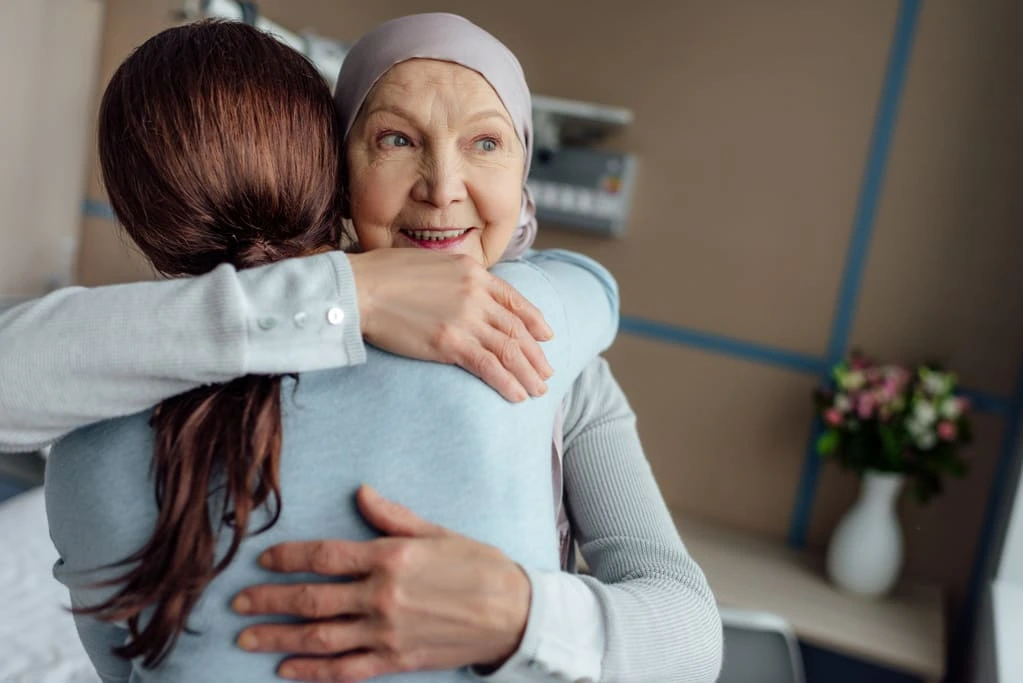The Role of Experience and Continuous Training
Experience is the cornerstone of expertise. It equips clinicians with the ability to navigate healthcare challenges with confidence and provide effective care with compassion and empathy. Like with all roles, gaining experience takes time and involves collaborating with other professionals and actively listening to people’s needs. Experience is gained and earned, but it is not enough to ensure quality of care. Healthcare is dynamic and requires a commitment to continuous training. It helps clinicians remain at the forefront of medical knowledge, refine their skills, and embrace initiative practices, effectively adapting to evolving healthcare needs.
When you combine experience with continuous training, you create dedicated healthcare professionals committed to providing exceptional support and maintaining standards of care. Combined with a culture of excellence and collaboration, experienced healthcare professionals go on to share their wealth of knowledge with newcomers, ensuring the next generation of clinicians is supported.
At LD Network, our clinicians consistently benefit from mentoring, coaching, and wellness checks, which help equip them with the knowledge and strength to provide exceptional care. In addition, we provide a plethora of mandatory training and specialised training, including Positive Behaviour Support (PBS), autism awareness, and mental health training. With the combination of support, experience and training, our clinicians continuously provide quality care.
Personalised Care Approach
A personalised care approach epitomises the intersection of empathy and medical expertise. Expert clinicians understand that health care is inherently individual, acknowledging the uniqueness of each person. This approach transcends a one-size-fits-all model, tailoring support to specific needs, preferences, and circumstances. Personalised care builds upon existing strengths and champions shared decision-making. Clinicians actively listen to the people they support, making sure their voices are heard and their preferences, goals and values are accounted for. Ultimately, a personalised care approach empowers people to take further control over their health, providing them with tailored tools, strategies and support and is a foundation of quality of care.
Person-Centred Care
Person-centred care is an approach that centres people at the heart of healthcare services and focuses on each individual’s unique needs and preferences. Personalised care is a part of person-centred care, as tailored interventions and support take precedence. It is an adaptable and inclusive approach that accommodates the diverse perspectives and preferences of care recipients. Quality health services prioritise shared decision-making, where people are actively engaged in discussions about their support options and desired health outcomes. This collaborative dynamic enhances the quality of care and establishes a foundation of trust and mutual respect between clinicians and care recipients. In a person-centred framework, clinicians provide support tailored to the individual and actively listen to concerns, preferences and needs to continually shape and create care plans aligned with their unique goals.
Enhanced Communication
Clear and effective communication between healthcare professionals and care recipients is crucial for maintaining high-quality healthcare provision. It establishes trust, alleviates anxiety, and empowers people to actively participate in their health journey. The ability to tailor communication styles to individual needs and preferences ensures that information resonates with the individual, fostering a collaborative, supportive partnership and quality of care. Enhanced communication is often innate to clinicians and care teams, as they seek to understand the individual and help improve their well-being. With that said, as it’s a core component of quality of care, health systems value this skill and provide extensive communication training, making sure that all team members provide high-quality care.
Effective Crisis Response
In crisis situations, expert clinicians draw upon their extensive experience and training to assess interventions and necessary steps. Their ability to remain calm under pressure, communicate clearly with multidisciplinary teams, and make timely decisions can significantly impact outcomes. By working proactively and actively listening, clinicians can de-escalate crisis situations and help the individual reach a point of physical and emotional safety. They also prioritise the emotional well-being of individuals and their families, providing support and guidance while fostering a sense of trust and collaboration.
Moreover, expert clinicians engage in reflective practices, analysing the events leading up to the crisis and identifying opportunities for improvement. This commitment to continuous learning ensures that lessons from crisis situations are integrated into the health system for future preventive care practices, enhancing overall preparedness and minimising the likelihood of similar occurrences.

How Clinicians Can Contribute to Positive Outcomes
Clinicians play an important role in contributing to positive outcomes and providing quality health services. By prioritising person-centred care and shared decision-making, they actively involve people in discussions about their support, making sure personal preferences and goals are considered. This collaborative approach empowers people and enhances independence while fostering a sense of ownership in their health journey.
Additionally, clinicians adopt a holistic approach to care. They recognise the interconnectedness of physical, emotional, and social well-being. By considering the broader aspects of a person’s life, clinicians can identify and address factors that may impact outcomes, leading to a more efficient care strategy and improving healthcare quality. Clinicians also engage with an array of health professionals and multidisciplinary teams, including nurses, therapists, social workers, and other specialists, to ensure support is holistic and comprehensive.
Ultimately, clinicians offer dedicated support, empowering individuals to recognise their strengths, believe in themselves, and reach positive outcomes.
The Greatest Measurement for Quality Care is The Positive Outcome
The pursuit of positive outcomes guides every clinician’s practice. It shapes their decision-making, support planning, and communication strategies. Every clinician wants the people they support to be happy, fulfilled, and healthy – to reach their individual goals and feel empowered. Positive outcomes look different for every individual and encompass a spectrum of results, including improved quality of life, prevention of further complications, and overall well-being. Expert clinicians understand that the true value of their efforts lies in the tangible and meaningful impact they have on the lives of the people they serve.
LD Network’s Pledge to Professional Improvement and Mandatory Trainings for Clinicians
One of the greatest hurdles care providers face is forming teams of professionals with a unified goal of delivering positive outcomes and person-centred support. It’s crucial that the whole team understands that providing support is a holistic duty that requires understanding and genuine care. Without this shared mission, care recipients will not receive the care they need and deserve.
Believing in an outcome-based approach, LD Network provides unparalleled staffing solutions to health care providers. In times of need, we provide dedicated and professional support that works alongside your existing teams and who believe in your mission.
We provide a range of mandatory and specialised training with teams of clinicians who are ready to provide urgent and necessary care. Our teams are skilled in buccal midazolam, PROACT-SCIPr and learning disabilities and benefit from a range of awareness courses, including Epilsepy, Makaton and autism awareness.
LD Network provides staffing solutions across the entire UK with offices across Devon and Cornwall.
Contact us today, and benefit from a staffing solutions partner that believes in your mission.












